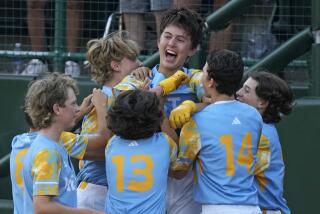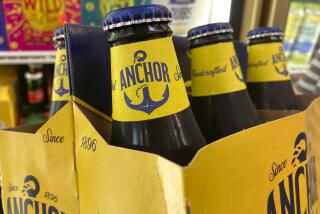His brewery was off to a solid start. Then ‘Stone Cold’ Steve Austin showed up
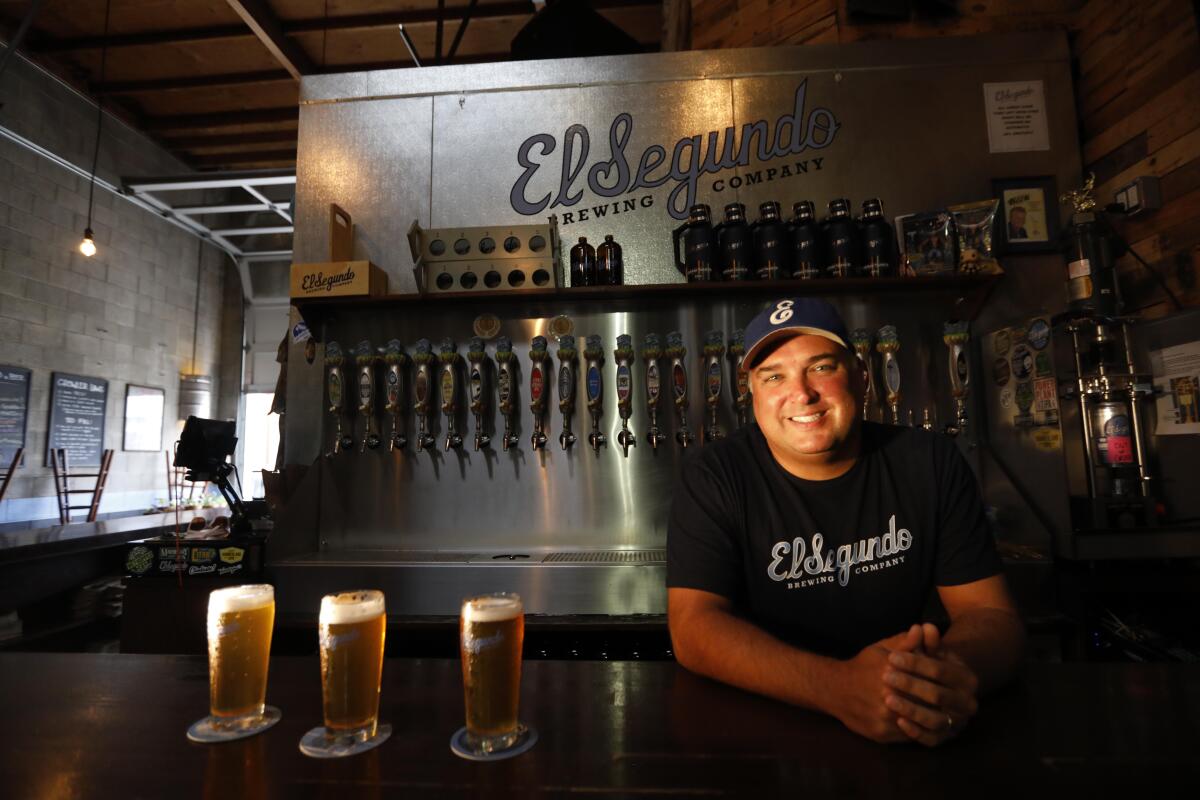
- Share via
Rob Croxall is “el jefe” — that’s what his business card says — of El Segundo Brewing Co., the brewery he founded nearly a decade ago that has grown into one of the region’s best-known craft beer producers. Its most high-profile concoction is Broken Skull IPA, which Croxall created with former professional wrestler “Stone Cold” Steve Austin. Croxall also runs the Slice and Pint, an El Segundo pizza joint.
Beach boy
Croxall, 47, grew up in El Segundo and learned to surf at nearby El Porto Beach, where he still catches waves when he can find the time. “My friends were surfers,” he said. “In a beach town, that’s what you grow up doing.”
Croxall also played baseball, well enough to receive a scholarship to play the game for Cal Poly San Luis Obispo. There he earned a degree in finance and a master’s in industrial technology, which he described as a cross between business and engineering.
“My first thing was baseball. I didn’t know what I wanted to do” for a career, he said. Finance, he decided, “would be applicable to a lot of things.”
Aerospace man
Back in El Segundo, Croxall went to work in the aerospace industry starting at TRW Inc., where he was business manager for a group of engineers working on satellite designs. As the years spooled out and defense companies merged and folded, Croxall found work at companies with big government contracts including Hughes, Boeing and Northrop Grumman.
“I ping-ponged around in those years,” he said. “I was making progress career-wise but never loved what I was doing.”
Facing up to disappointment
Around age 35, Croxall looked at his likely career path and grew discouraged as he contemplated his next 25 years or so before retirement.
“I looked at the jobs that were the best-case scenario in my field and I didn’t want to do any of them,” he said. “Eventually it got to the point where I had an epiphany of sorts” that the job he wanted wasn’t in aerospace.
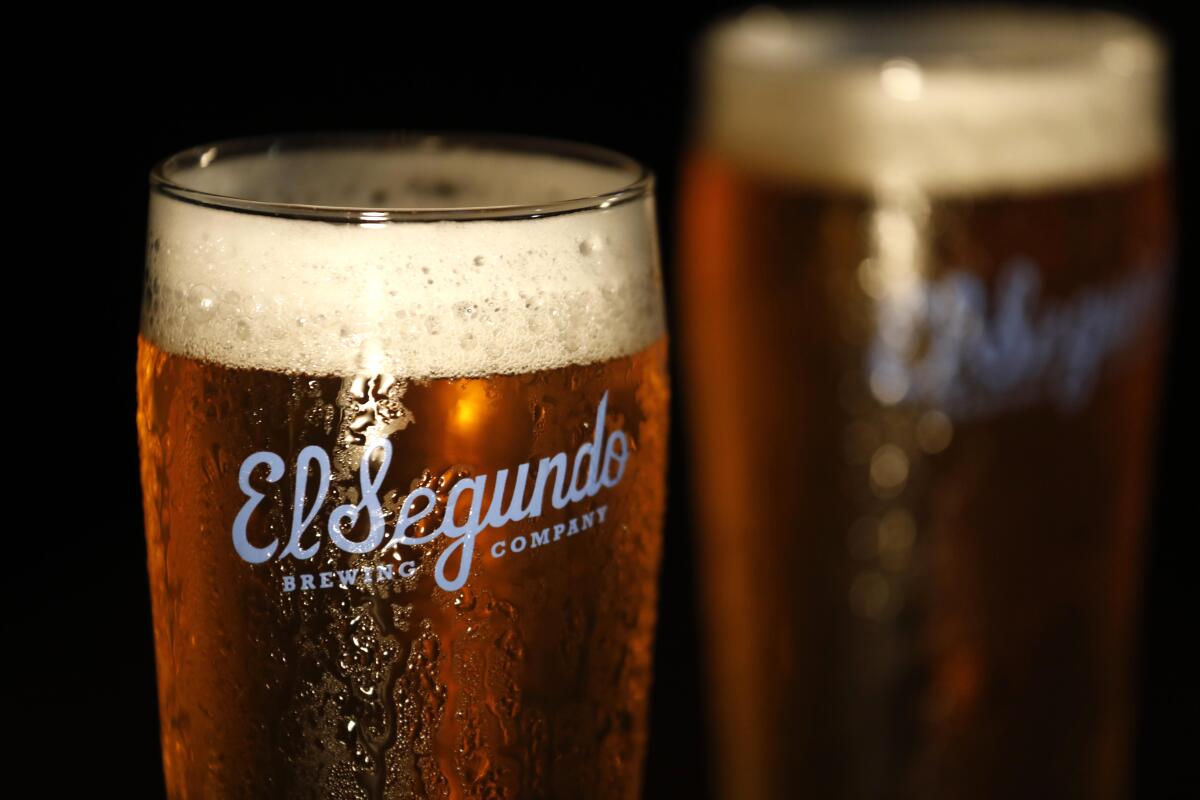
Fermenting change
One thing Croxall did enjoy was making beer. A friend at Boeing had given him a home brewing kit around 2002 and he was jubilant about the pale ale he made for his first batch.
“I thought it was the best thing ever,” he said, “but it was probably terrible.”
For the next nine years, Croxall experimented with styles and ingredients, keeping careful notes that he still refers to sometimes. When he reached his epiphany about his aerospace career, he had a clear idea what he wanted to do next.
Calculated leap
Plotting his leap to brewing, Croxall deliberately “made a career-derailing left-hand turn” and got a job tracking company-owned equipment and billing because it gave him time to plan his move to brewing. “It was pretty dreary for what a finance guy would be doing.”
Then he enrolled in the Master Brewers Program at UC Davis, an intensive two-month course with prerequisites in chemistry and biology that gave him the foundation to make beer professionally. Before getting that education, “I felt like I had a good grasp on how ingredients play together, how flavors might work together,” he said. “But as far as the science was happening I was lost.”
Going pro
In 2010, Croxall leased a building on Main Street in El Segundo where he started making beer for a handful of bars and restaurants. He also set up a cramped tasting room that he thought would be primarily “a fun place for me and a couple of buddies to drink beer.”
To his surprise, beer aficionados converged to sample the brews of what was then only the sixth independent beer production company in Los Angeles County. (Today there are more than 90 independent brewers.) Croxall was also pleased to learn that he could sell pints of beer poured in his own tap room for as much as $7, compared with about $1.25 wholesale. He added a proper tap room to the brewery, where customers now sip beer a few feet away from tall fermentation tanks and bottling equipment.
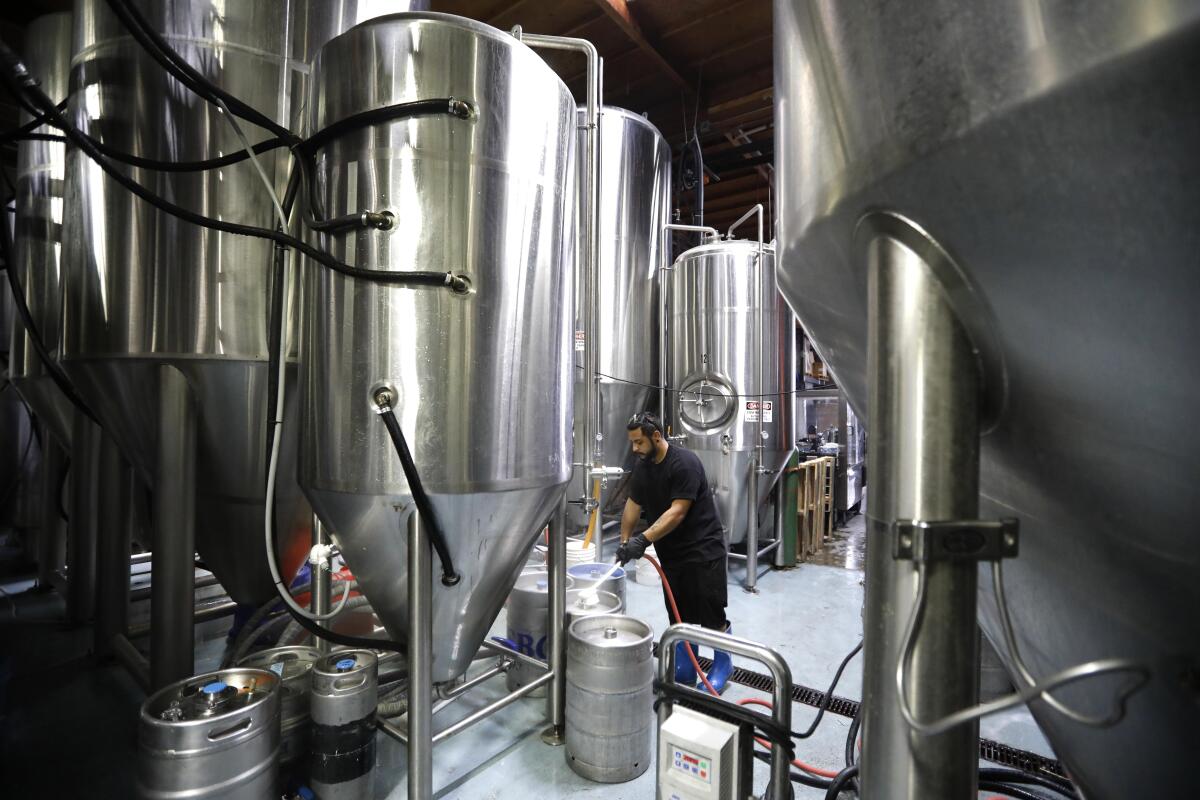
Broken Skull
Former pro wrestler Steve Austin, who had a ring persona as a rebellious beer-swilling antihero, became a fan of El Segundo Brewing’s Mayberry IPA and Citra Pale Ale. A mutual friend brought Austin to the brewery to meet Croxall and the two men talked beer.
“It turned out he had a real interest in beer and he asked a lot of smart questions,” Croxall said. “At the end, he mentioned that he had thought about making a brewery project before.”
The men went on to create Steve Austin’s Broken Skull IPA, an India pale ale. “It’s designed to his taste,” Croxall said. “He has been hands-on and takes a great deal of pride in that beer.”
Sales leap
In its early days, the brewery could ferment 60 barrels at a time. Now it has the capacity to ferment 580 barrels and last year it sold 5,700 barrels, or nearly 177,000 gallons. This year, Croxall expects to sell more than 7,000 barrels “primarily because of the push we are getting from Steve Austin,” he said.
Home life
Croxall and his wife, Amy, live in El Segundo, where both grew up. Their teenage son and daughter play baseball and softball and the family travels frequently for games.
“When I get free time for myself, I like to get out and surf,” he said.
The beer-making life
People, perhaps wishfully, picture brewers “standing in the brew house with a beautiful glass of beer,” Croxall said. The reality is less glamorous.
“All you do is clean stuff all day,” Croxall said. “You clean tanks, kegs, your brew house. The labor is intense. That said, I would never trade it.”
More to Read
Inside the business of entertainment
The Wide Shot brings you news, analysis and insights on everything from streaming wars to production — and what it all means for the future.
You may occasionally receive promotional content from the Los Angeles Times.


